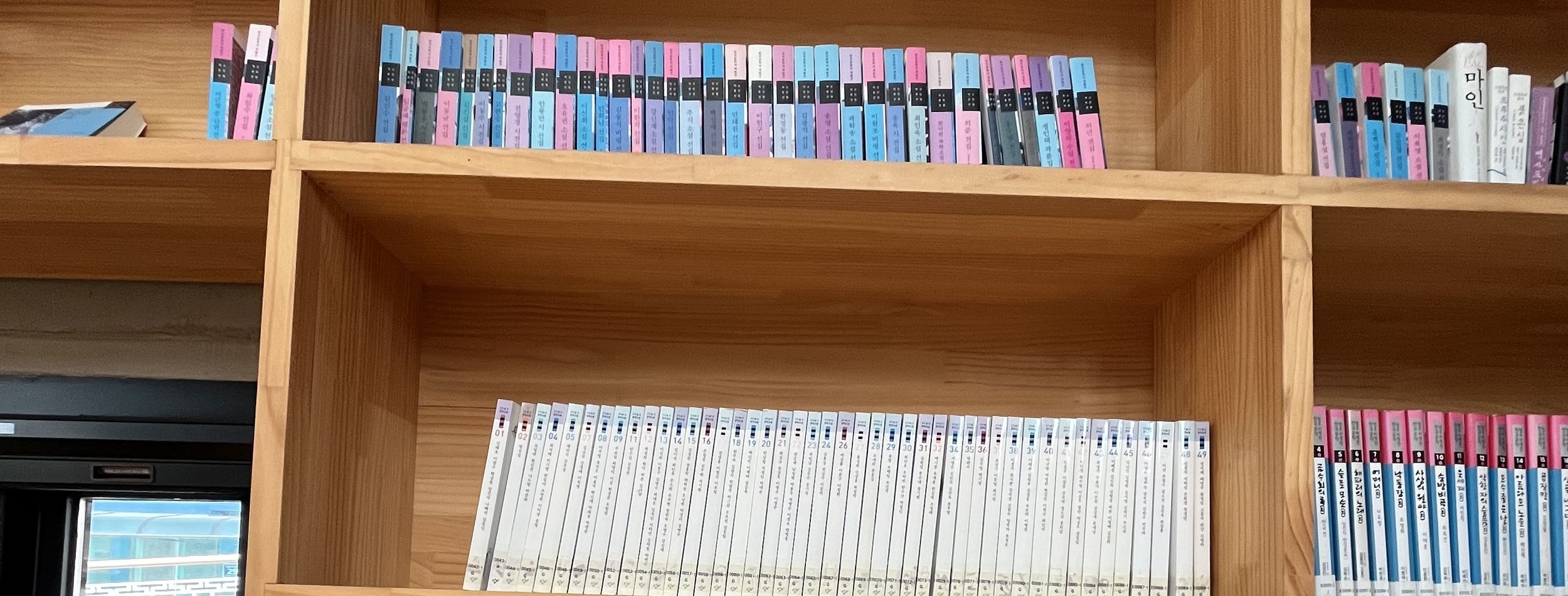
Research Interests
Korean Modern Literature Museum, Incheon, South Korea, 2023
My research interests include comparative literature, memory studies, postcolonial theory, world literature, French and Korean literary and cultural studies, museum studies, transmediality, trauma studies, literatures of mass violence, and genocide studies.
Comparative Ethos I prioritize a multilingual, transcultural, and transmedial approach in my work. My projects strive to build reciprocal scholarly conversation between places where histories of colonialism or trends of Eurocentrism have previously dictated uneven comparative work. This means that my literary and theoretical sources come from both Korean- and French-language scholarship and my work moves laterally between the two. I premise my reserach on the idea that local discourses have transnational value and that new insight can be found through the comparison of literatures or objects that might at first appear unlike. I also cultivate transmedia comparison that challenges what we see as literature and applies literary reading methods to new objects.
Dissertation Project I completed and defended my dissertation, “An Enemy Within: Imagining the Collaborator in Transwar France and Korea” under the supervision of Dr. Rey Chow and Dr. Nayoung Aimee Kwon in 2025. My dissertation unravels contentious collective memories of collaborators during the Nazi Occupation of France (1940-44) and the Japanese Occupation of Korea (1905-45). I am interested in the consistent figuration of collaborators as threats across these spaces and mediums—how they are transformed from real individuals into archetypes in nationalist narratives on both the right and the left.
While most of my chapters focus primarily on literature, film, and historiographical texts, my final chapter uses site-specific field research conducted as a Fulbright-Hays Doctoral Dissertation Research Abroad Fellow to analyze how collaborators are included in or excluded from museums and memorials and how these public history sites can reinforce or configure alternative rememberings. My research is also supported by the Korea Foundation.
Ongoing Projects A forthcoming article, adapted from my dissertation work “Futility and Fantasy of the Intellectual Collaborator” will be published in Comparative Literature Studies in 2026.
In 2023, I published an article in Memory Studies titled “‘Let me be dust’: Memory Beyond Testimony in Gwangju, South Korea” in a special issue that examines embodiment, fractured truths, and perambulatory memory within memorial and museum spaces. This article meditates on the ways that international human rights projects like UNESCO’s Memory of the World Register have both protected and delimited how the 5·18 Gwangju Uprising is remembered, and how novelistic memory in Ch’oe Yun’s There a Petal Silently Falls (1988) offers a complementary and complicating approach to understanding life after mass violence.
This work is indicative of my turn towards memorial museums as narrative mediums. I am interested in better understanding how memorial museums operate as discursive objects—even as “texts”—in ways that are both similar to and distinct from those of novels and film.